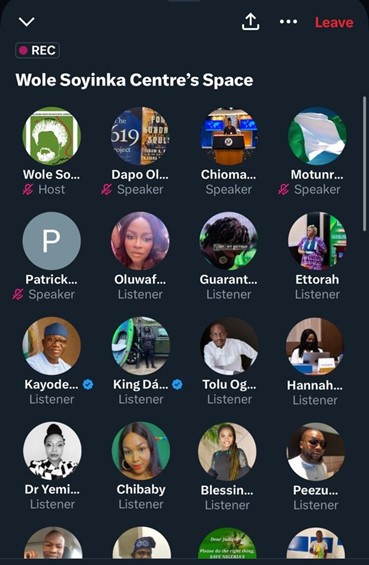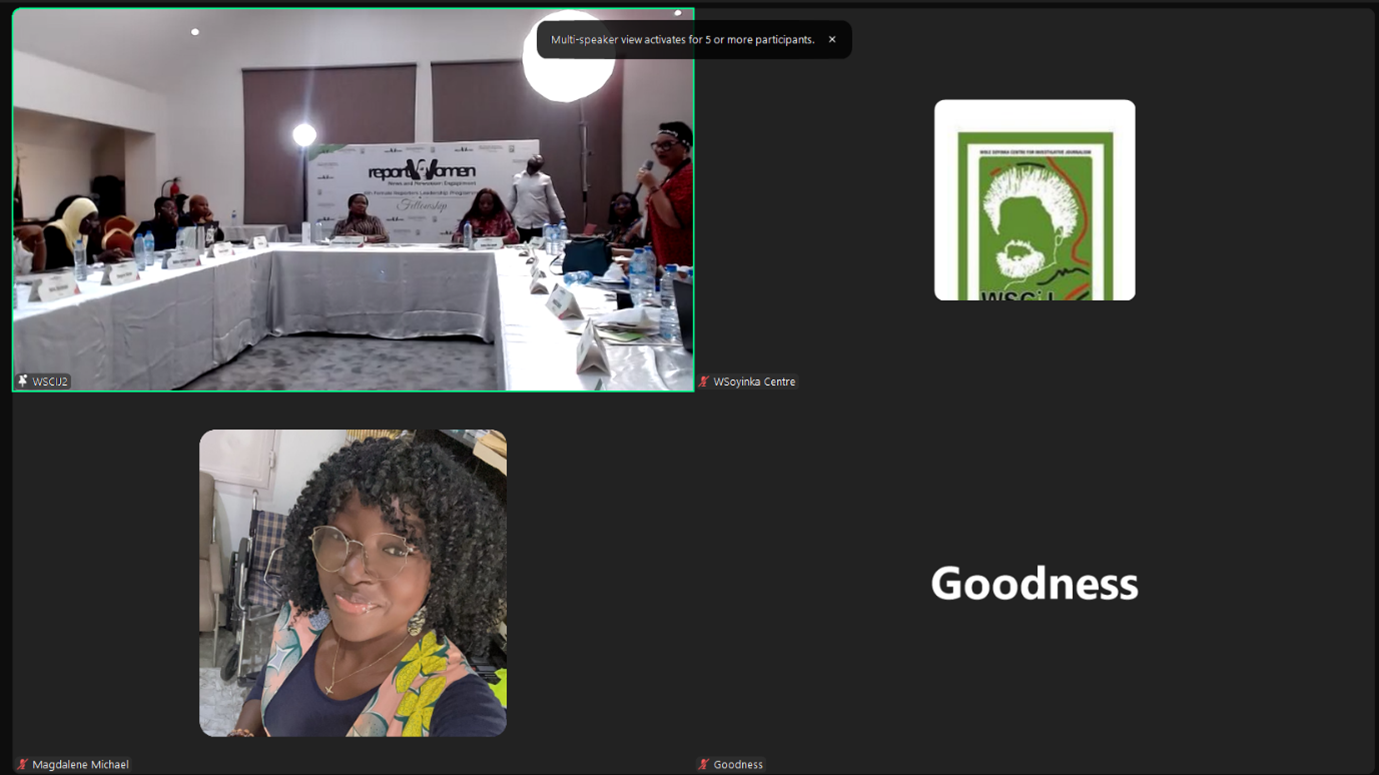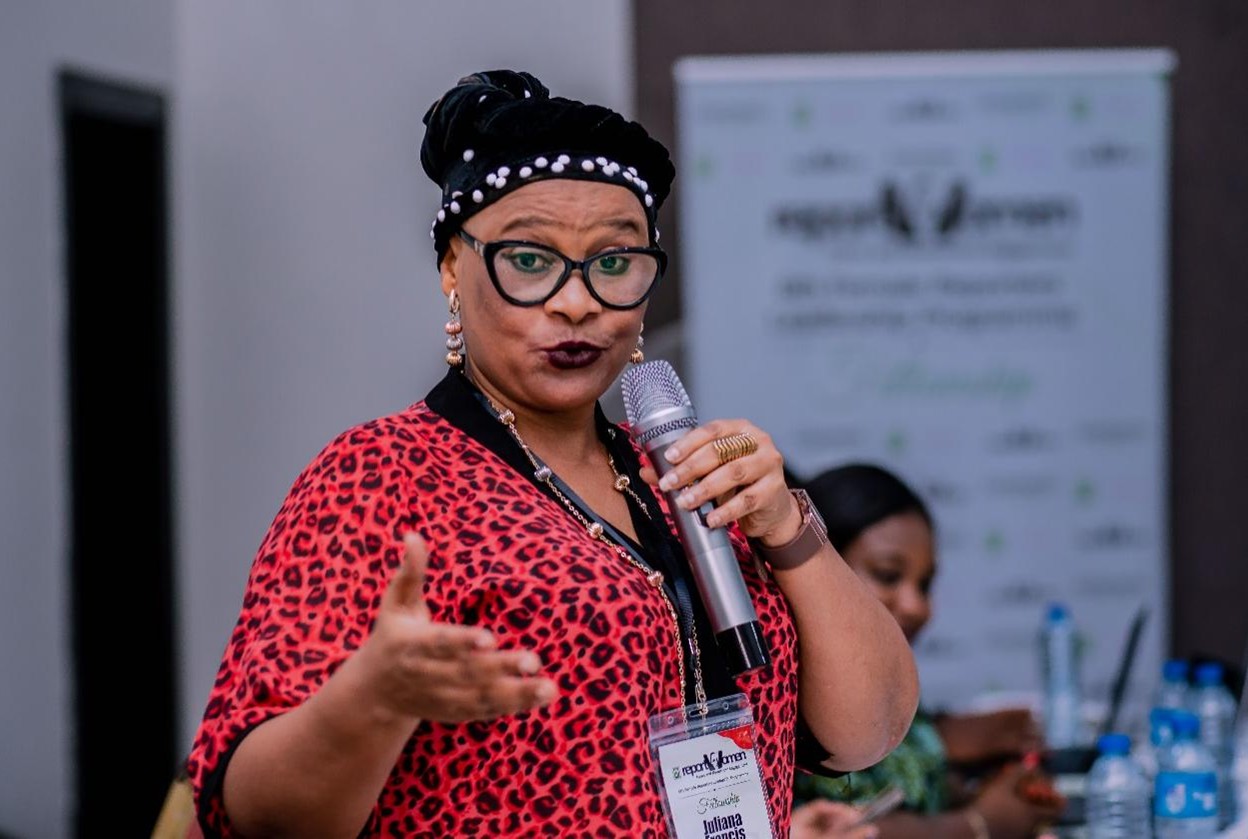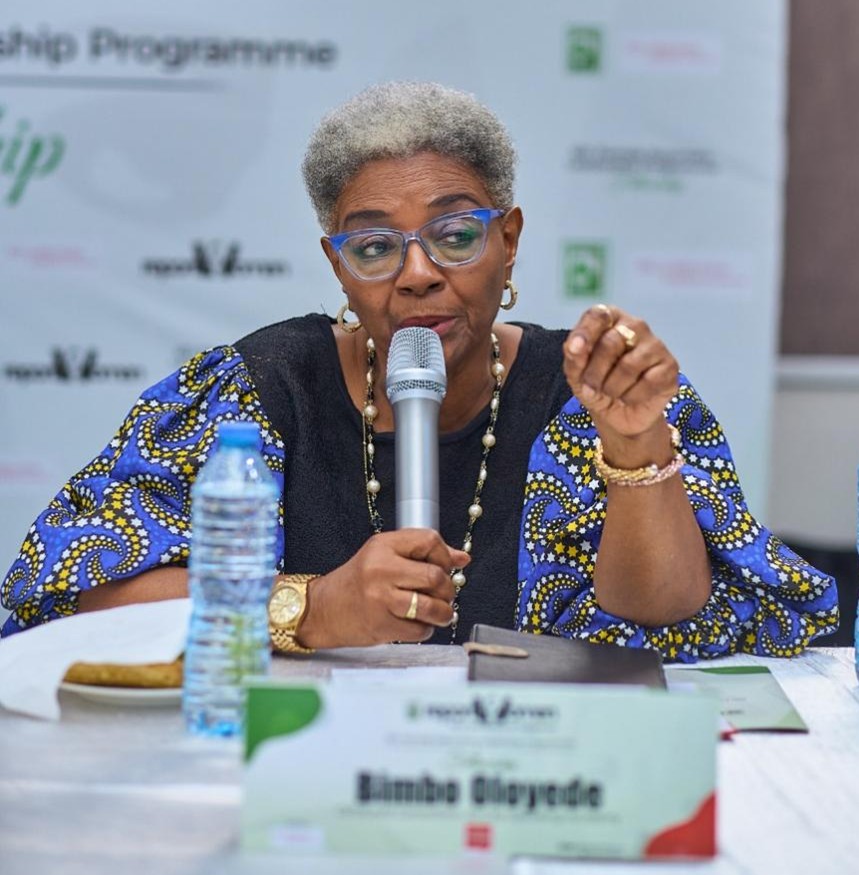Experts from media, development sector and government have emphasised the importance of professionalism and stakeholder coalition in establishing a sustainable media landscape during the June edition of the Wole Soyinka Centre for Investigative Journalism (WSCIJ)’s Journalism & Society Twitter Spaces to mark the 2023 Democracy Day.
The panellists – Dapo Olorunyomi, publisher of Premium Times; Stella Din-Jacob, Director of News, TVC Communications, Hafsat Abiola-Costello, founder of the Kudirat Initiative for Democracy (KIND); Tolu Ogunlesi, former Special Assistant on Digital/New Media to former Nigerian President Muhammadu Buhari; Mercy Abang, CEO of Hostwriter, and Patrick Allam, Legal Compliance officer at Spaces for Change (S4C) – underscored the pivotal role journalists continue to play in the democratic struggle in Nigeria, while discussing the theme ‘Media and Democracy: How has Nigeria fared?’.
Olurunyomi said during the struggle for democracy, the press paid the price as they consistently mobilise Nigerians in the face of distractions while putting the democratic agenda on the front burner. The Premium Times’ publisher said news media provide accountability, set development agenda, and serve as a gatekeeping mechanism in a democracy. Drawing positives, he highlighted the participation of young Nigerians in the 2023 election as a giant step in Nigeria’s democratic landscape.
On her part, Din-Jacob said the media must sustain its momentum to preserve democracy just as it did against military regimes. The Director of News at TVC News identified the National Broadcasting Commission (NBC) fines as a challenge the broadcast media faces while holding the government to account.
Ogunlesi pointed out the thin line between journalism, politics and democracy as he credited journalists such as Nnamdi Azikiwe, Herbert Macaulay and others as founding fathers of Nigerian democracy. Discussing the current reality in Nigeria, the former Special Assistant on Digital/New Media to former Nigerian President Muhammadu Buhari, argued that social media has disrupted the media and encouraged the multiplicity of voices critical to democracy. He advocated a multi-stakeholder coalition to look at media activities in the digital age because apart from holding the government to account, the media must hold itself accountable.
Allams argued that the operating space for the media is still under attack with clampdowns on journalists, NBC fines and the recent Twitter ban despite the democratic system of governance. He pushed for mutual respect among all stakeholders for the value they bring and their contributions to the democratic journey.
Meanwhile, Germany-based Mercy Abang applauded the media’s significant steps over the last 10 years in pushing back against attacks through public interest litigation, advocacy, and citizen journalism as she highlighted funding as the greatest threat to media operation. Abiola-Costello commended journalists for their role in democracy. The founder of Kudirat Initiative for Democracy explained that the media had risked so much due to their belief in Nigeria. She, therefore, called for the need to deepen media professionalism and make the profession economically viable for independent media.
In her remarks, Motunrayo Alaka, Executive Director/CEO of WSCIJ, said the activities of the Nigerian media and journalists made democracy possible. According to her, the Democracy Day celebration provides an opportunity for journalists to celebrate its achievements and engage in civil conversations on how it will continue its duty of holding the government accountable to its social contracts to the people.
Theophilus Abbah, Director, Daily Trust Foundation, called for journalism training and reorientation at the state and local government levels to contribute to national development. For him, journalists must delve into investigative reporting, own what they publish, and rise above dependence on press statements.
Signed,
WSCIJ Team








